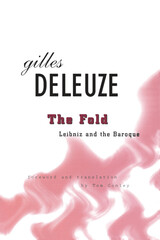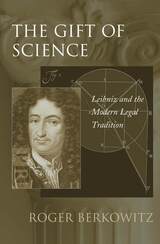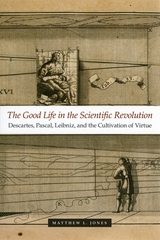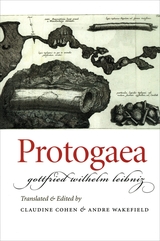

The front pages of our newspapers and the lead stories on the evening news bear witness to the divorce of law from justice. The rich and famous get away with murder; Fortune 500 corporations operate sweatshops with impunity; blue-chip energy companies that spoil the environment and sicken communities face mere fines that don't dent profits. In The Gift of Science, a bold, revisionist account of 300 years of jurisprudence, Roger Berkowitz looks beyond these headlines to explore the historical and philosophical roots of our current legal and ethical crisis.
Moving from the scientific revolution to the nineteenth-century rise of legal codes, Berkowitz tells the story of how lawyers and philosophers invented legal science to preserve law's claim to moral authority. The "gift" of science, however, proved bittersweet. Instead of strengthening the bond between law and justice, the subordination of law to science transformed law from an ethical order into a tool for social and economic ends. Drawing on major figures from the traditions of law, philosophy, and history, The Gift of Science is not only a mesmerizing and original intellectual history of law; it shows how modern law remains imprisoned by a failed scientific metaphysics.

Amid the unrest, dislocation, and uncertainty of seventeenth-century Europe, readers seeking consolation and assurance turned to philosophical and scientific books that offered ways of conquering fears and training the mind—guidance for living a good life.
The Good Life in the Scientific Revolution presents a triptych showing how three key early modern scientists, René Descartes, Blaise Pascal, and Gottfried Leibniz, envisioned their new work as useful for cultivating virtue and for pursuing a good life. Their scientific and philosophical innovations stemmed in part from their understanding of mathematics and science as cognitive and spiritual exercises that could create a truer mental and spiritual nobility. In portraying the rich contexts surrounding Descartes’ geometry, Pascal’s arithmetical triangle, and Leibniz’s calculus, Matthew L. Jones argues that this drive for moral therapeutics guided important developments of early modern philosophy and the Scientific Revolution.


Though the works of Leibniz have been widely translated, Protogaea has languished in its original Latin for centuries. Now Claudine Cohen and Andre Wakefield offer the first English translation of this central text in natural philosophy and natural history. Written between 1691 and 1693, and first published after Leibniz’s death in 1749, Protogaea reemerges in this bilingual edition with an introduction that carefully situates the work within its historical context.
READERS
Browse our collection.
PUBLISHERS
See BiblioVault's publisher services.
STUDENT SERVICES
Files for college accessibility offices.
UChicago Accessibility Resources
home | accessibility | search | about | contact us
BiblioVault ® 2001 - 2024
The University of Chicago Press









